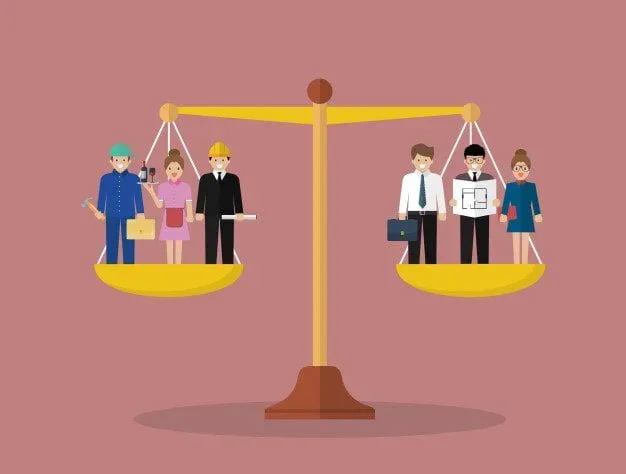Equality of Opportunity

This is a DRAFT Equality Statement. To contribute to the development of this statement, please sign up to the IN-CJ Discussion Forum.
1 Introduction
The International Network for Criminal Justice is associated with criminal justice practices and system across the world, working with our partners, members and supporters to promote better understanding of crime, policing, punishment and protection of the public in order to create a fairer, more just and safer society. The network is independent of any single organisation or institution, and we work across borders and criminal justice traditions to facilitate knowledge exchange and better understanding of the principles and practices of criminal justice in different places. Members and supporters of the network seek to always be fair and objective, and provide support and knowledge exchange opportunities with integrity to help secure better understanding of crime and the social harm criminal activity causes.
2 Vision
Our goal is to be a leading contributor in the transformation of understanding of criminal justice systems around the world, using our research expertise and professional capability to help members of the public, professional practitioners, policymakers, advocates, researchers and teachers understand that criminal justice comes in many forms, but has shared values for reform, punishment and social justice, which can be applied in different ways to help diverse communities have confidence in how crime is dealt with.
Our values are:
- Treat everyone with respect – we will think independently, without bias and will seek to deliver evidence-based content.
- Be independent and fair – we will explain our approach, set clear standards about the service our members and supporters can expect from us, and be honest if we make a mistake.
- Be honest and open – we will respect each other, our colleagues and the people we serve, recognising that there are people behind every situation.
- Behave professionally and strive for excellence – we will work collegiately, always seeking new and better ways to foster open knowledge exchange, and provide value for money for those who support and fund us.
- When producing and planning content and services for our network, we must be fair and objective. The ethnic or national origin, gender, disability, age, religion or belief, sexual orientation or gender identity of the people we discuss, represent or interact with must not negatively influence the work that we do.
3 Equality Legislation
In the United Kingdom, the Equality Act 2010 provides protection for the individual against prohibited conduct such as direct and indirect discrimination, harassment and victimisation and a duty to make adjustments for disabled people in certain circumstances. The law imposes a general duty on public authorities and services to have due regard in all that we do to:
- Eliminate discrimination, harassment and victimisation.
- Advance equality of opportunity between people who share a relevant protected characteristic and people who do not share it.
- Foster good relations between people who share a relevant protected characteristic and people who do not share it.
The relevant protected characteristics are: age; disability; gender reassignment; pregnancy and maternity; race; religion or belief; sex; sexual orientation (Marriage and civil partnerships – only for the first aim of the duty).
4 Equality, Diversity and Inclusion
To ensure that the principles contained in this statement, and the duties imposed by equality legislation inform our day-to-day activity, we will embed equality into our planning, our decisions and actions in relation to our engagement and employment practices. Equality law requires that we do this; however, we also accept a moral obligation because it is the right thing to do and because we cannot aspire to be a just society without seeking to be a fairer society.
Through increased transparency and robust scrutiny of how we treat people, how we understand crime, and how we engage with communities, we will ensure that equality remains at the heart of the IN-CJ’s work.
5 Approach to Equalities
For the IN-CJ, equality diversity and inclusion is about more than just meeting our statutory requirements. Equality, diversity and inclusion is fundamental to delivering fair research, knowledge exchange and professional development, achieving equitable employment practice and building the confidence of all the communities we serve.
We recognise the importance of working closely with community representatives, voluntary sector organisations and academics across the various protected characteristics, and welcome their perspectives, scrutiny and insight to inform the service we provide to people who may belong to several different communities.
We acknowledge the need for continuous improvement and the need to recognise what we can do to achieve positive change. In relation to disability, this will mean that we focus on societal/organisational barriers that disadvantage, disempower and disable people because of their impairments.
To support the development of more effective and inclusive employment and service delivery policies and practices, we will review all our policies and functions to assess their relevance to equality and diversity.
6 Measuring Progress
We will track and measure progress in a number of ways, including:
- Feedback from members and supporters in our regular equalities scrutiny survey.
- Independent external benchmarking with partner organisations.
- Validation through appropriate certificate of assurance processes.
7 Conclusion
We recognise that building better understanding of crime, punishment and justice means being fair about how we represent and engage with people who are the victims of crime, or are the perpetrators of crime. We aim to support different partners to increase levels of confidence among the diverse communities we and they serve. Trust in the legitimacy and impartiality of the criminal justice system may be a significant factor in securing justice for victims, and reform for offenders. The same person may encounter a criminal justice system as a suspect, a defendant, a victim or a witness. They will interact with people who are professional managers, advocates, support providers, researchers or other associated roles, each of whom will be valued equally for their contribution to ensuring positive social outcomes.
